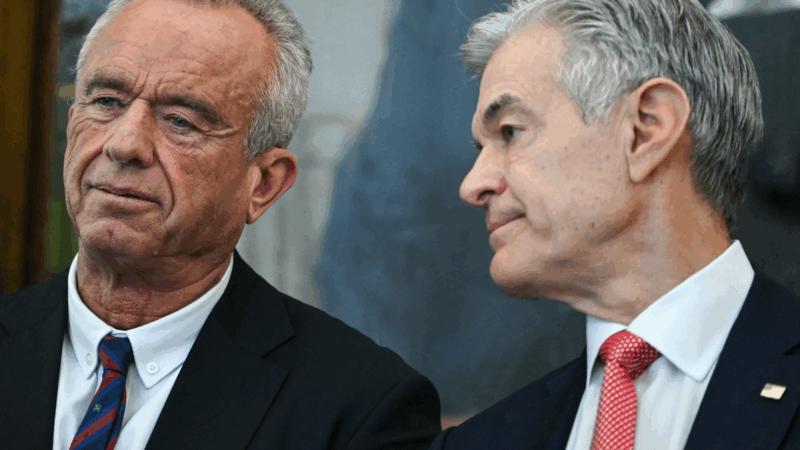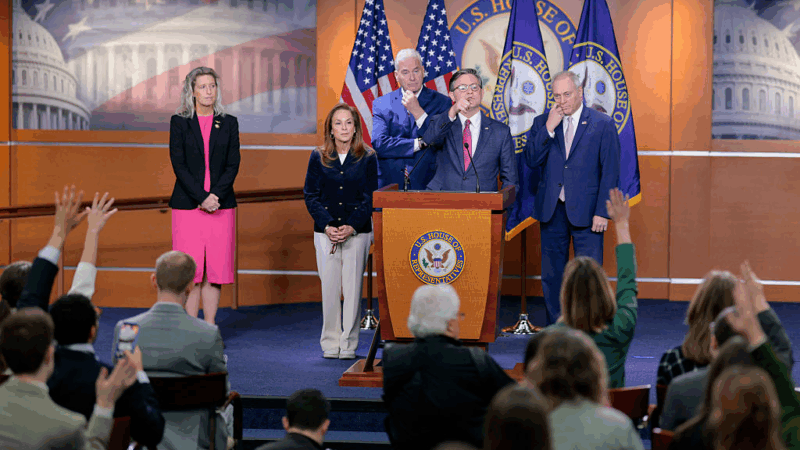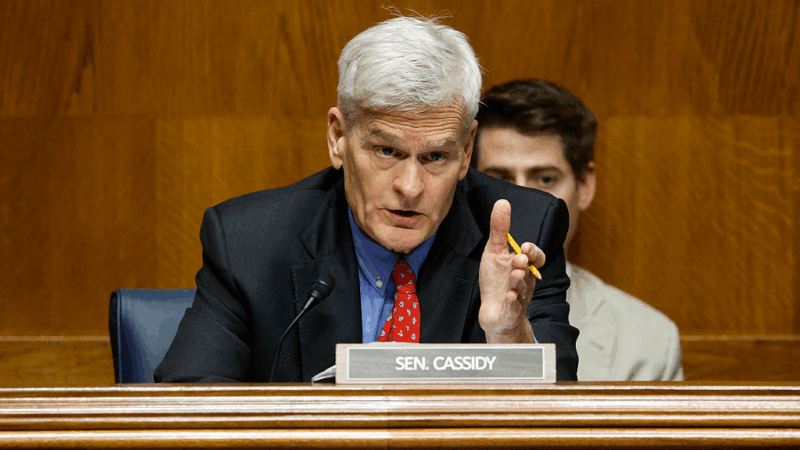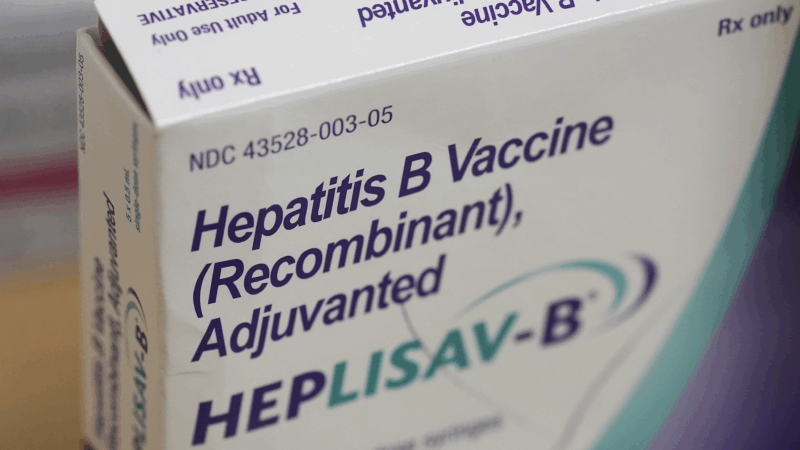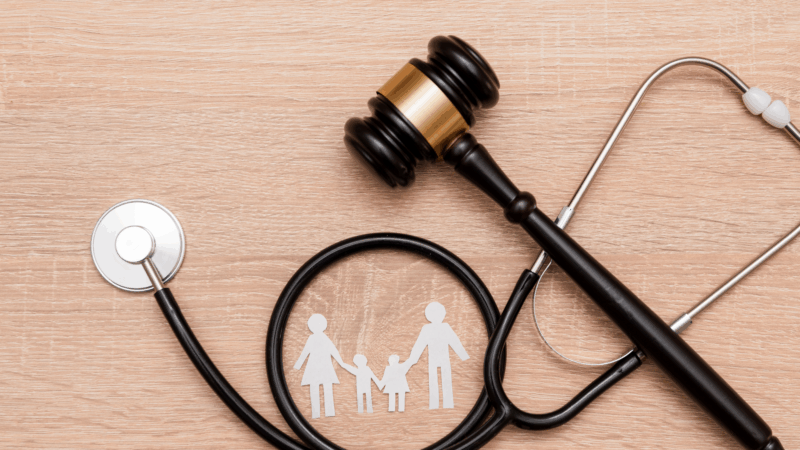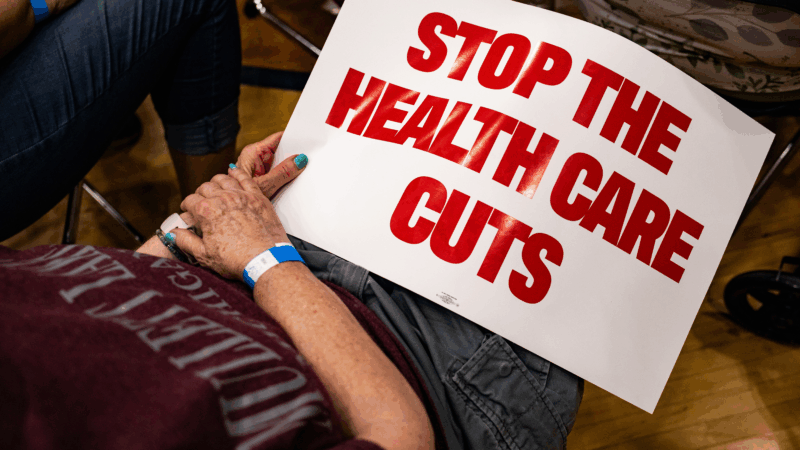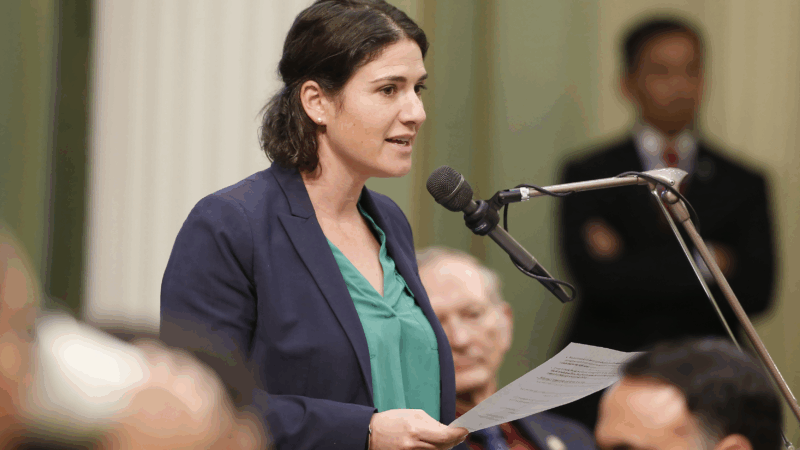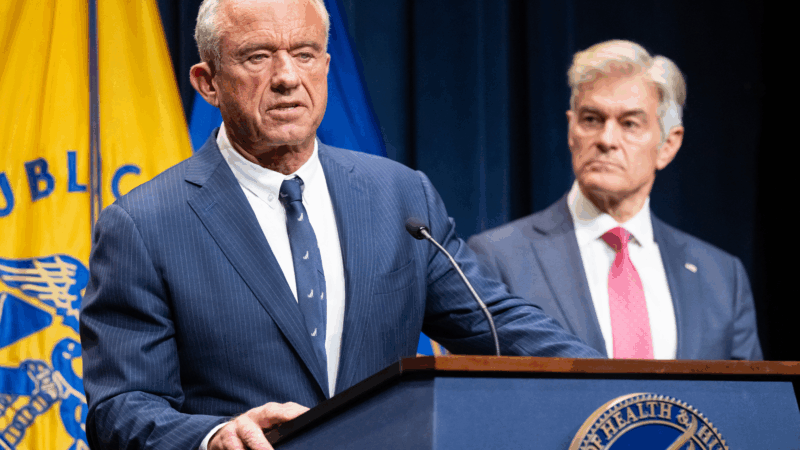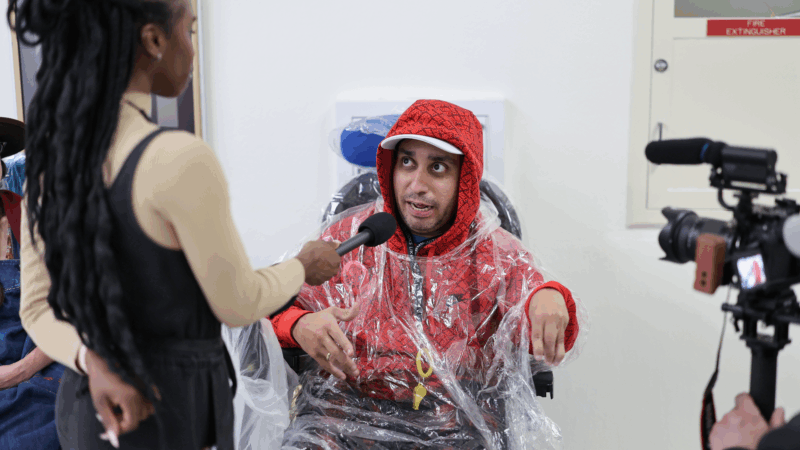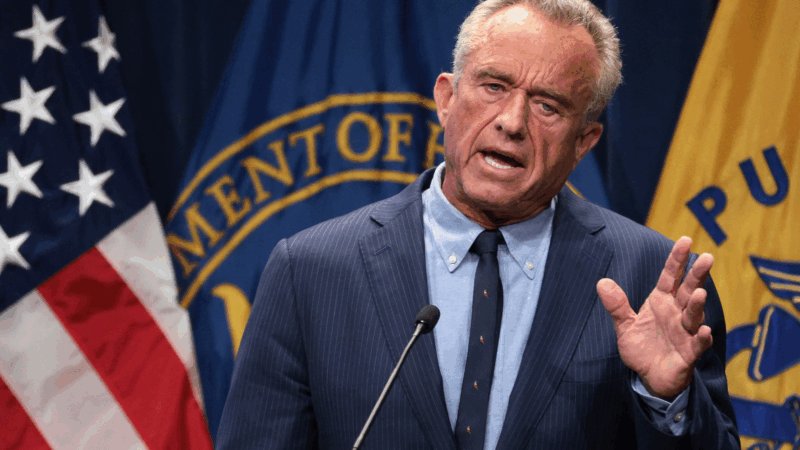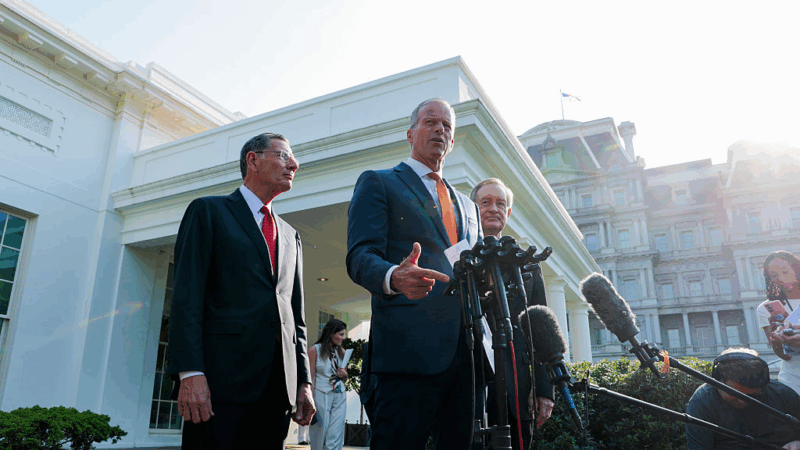Policy-ish
Farmers are about to pay a lot more for health insurance
Tariffs, inflation, and other federal policies have battered U.S. farmers' bottom lines. Now many farmers say the expiration of federal health care subsidies will make their coverage unaffordable.
Trump’s push to end transgender care for young people opposed by pediatricians
Doctors and children's hospitals say nothing in the evidence has changed to justify the Trump administration's efforts to ban gender-affirming care for teens and tweens.
RFK Jr. and Dr. Oz to announce moves to ban gender-affirming care for young people
Health Secretary Robert F. Kennedy Jr. is expected to announce a package of measures that would together ban gender-affirming care for minors. A press conference is set for 11 a.m. Thursday.
ACA shoppers face sticker shock as Congress dithers on health care
With subsidies that help consumers pay their health insurance premiums set to expire, health care shoppers face staggering prices. Lawmakers are running out of time to agree on a solution.
After NIH grant cuts, breast cancer research at Harvard slowed, and lab workers left
Amid NIH funding delays, reversals and uncertainty, a scientist at Harvard who studies breast cancer has lost one-third of her lab employees and wonders if she can continue her research experiments.
Republicans push high deductible plans and health savings accounts
A Republican call to give Americans cash instead of health insurance subsidies revives an old idea that has left millions with medical debt.
As sports betting explodes, should states set more limits to stop gambling addiction?
With concerns about addiction rising, some advocates and lawmakers call for federal regulations on the gambling industry — but would settle for more state laws to help curb excessive betting.
Kennedy’s vaccine panel expected to recommend delaying hepatitis B shot in children
RFK Jr.'s hand-picked panel of vaccine advisors is expected to vote to delay the hepatitis B shot for newborns. Doctors warn that could fuel a return of a disease virtually eradicated in U.S. kids.
On Texas border, uninsured people stress the health system. It’s set to get worse
In South Texas' Rio Grande Valley, many people go without health insurance, and the health system struggles as a result. Similar communities dot the nation.
When hospitals and insurers fight, patients get caught in the middle
About 90,000 people spent months in limbo as central Missouri's major medical provider fought over insurance contracts. These disputes between insurers and hospitals are a recurring problem.
She’s bracing and saving to pay $2,800 a month for ACA health insurance next year
Raiding retirement savings. Pondering job changes or even marriage. People who buy their own health insurance are strategizing ahead of major price hikes in 2026. Open enrollment starts Nov. 1.
Offered a cash price for a prenatal genetic test? It may be your best bet
An expectant mom got a $750 bill for a blood test to check for genetic abnormalities in her baby. Then she tried to figure out why it was so high.
Amid growing ‘scandal’ of elder homelessness, health care groups aim to help
The housing crisis is requiring creative scrambling and new partnerships from health care organizations to keep older patients out of expensive nursing homes as homelessness grows.
He built Michigan’s Medicaid work requirement system. Now he’s warning other states
Michigan's health director spent a year and $30 million building a work requirements system for Medicaid. The problems he encountered have him worried now that 40 states must do the same by 2027.
Congress looks to ease veterans’ use of health care outside the VA
It can be difficult for veterans to use their health benefits for care outside the federal system. A bill in Congress could ease that. Opponents are wary funds being "siphoned" away from the VA.
States sue Trump administration after more hospitals stop treating transgender youth
A coalition of 16 states and D.C. argue in the lawsuit that the Trump administration is trying to effectuate a national ban on gender-affirming care for youth by intimidating hospitals and doctors.
Dozens of state laws take aim at food dyes amid a wave of support for MAHA
Fueled by MAHA, state lawmakers are moving to remove dyes and other additives from food. A wide range of state laws could make it difficult for manufacturers and could spur further federal regulation.
Do ‘work requirements’ in Medicaid work? Georgia’s been trying it for two years
Most states will have to establish work requirements for Medicaid by 2027. Georgia has had them for two years. Some Georgians say the glitchy system makes it too hard to prove they actually qualify.
Even megastars like Venus Williams get the health insurance blues
In the U.S., as nowhere else, health insurance and employment are deeply connected. And that means confusion can snare even elite athletes.
Trump voters wanted lower medical bills. But for millions, bills are about to go up
Moves by the Trump administration to pare back Medicaid, rescind medical debt rules and loosen vaccine requirements threaten to increase medical bills for millions of Americans.
Fearing coverage could change, some parents rush to vaccinate their kids
Health Secretary Robert F. Kennedy Jr. is changing how federal agencies handle vaccine recommendations. Some parents are hurrying to get kids their shots, fearing future changes could limit access.
Why the health care lobby failed to stop cuts to Medicaid funding
The powerful health industry lobby couldn't persuade GOP lawmakers to oppose big Medicaid cuts in President Trump's tax and spending bill. What's behind the lobbying failure?
State laws to stop surprise ambulance bills face pushback from insurers
Policymakers agree patients shouldn't be stuck in the middle when an ambulance service charges more than what an insurer will pay. But they can't settle on what price is fair.
Feds investigate hospitals over religious exemptions from gender-affirming care
A physician assistant claimed she was fired by a Michigan hospital for seeking a religious exemption regarding gender-affirming care. Now the federal government is also investigating.
Near old Montana mine, special clinic for asbestos-related illness fights to survive
The Center for Asbestos Related Disease in Libby, Montana, closed in May after a court judgment. The clinic's federal funding is also threatened. Patients with scarred lungs worry about what's next.
5 ways Trump’s tax bill will limit health care access
With spending cuts poised to hit medical providers, Medicaid recipients and Affordable Care Act enrollees, here's how the bill will affect health care access for millions in the U.S.
Doctors don’t get much menopause training. State lawmakers are trying to change that
The California legislature wants doctors to get more educated about menopause symptoms and treatment. It's one of a number of states passing menopause-related legislation.
U.S. uninsured rates could resurge if Trump’s budget bill passes
Millions could lose health insurance as the Trump administration and GOP-controlled Congress weigh major changes to the Affordable Care Act and Medicaid. "The effects could be catastrophic," one policy analyst predicts.
RFK Jr. and Dr. Oz say health insurers will cut red tape on ‘prior authorizations’
In recent years, health insurers ramped up the practice of requiring doctors to get their approval before tests and procedures. On Monday, health leaders announced voluntary reforms from insurers.
Medicaid keeps getting more popular as Republicans aim to cut it by $800 billion
Americans across the political spectrum like Medicaid and think it should get more funding, not less, according to a new poll from health research organization KFF.
RFK Jr. names new slate of vaccine advisers after purging CDC panel
Two days after firing vaccine experts who help set the nation's immunization policies, HHS Secretary Robert F. Kennedy Jr. has picked eight successors for the CDC panel.
How Trump’s ‘Big Beautiful Bill’ threatens access to Obamacare
If the law passes, new paperwork requirements and other logistical hurdles could lead to millions of people on ACA plans becoming uninsured, according to Congressional Budget Office.



